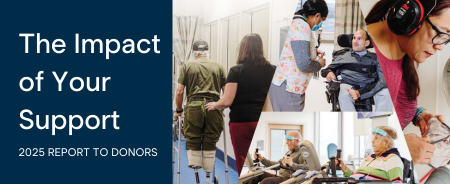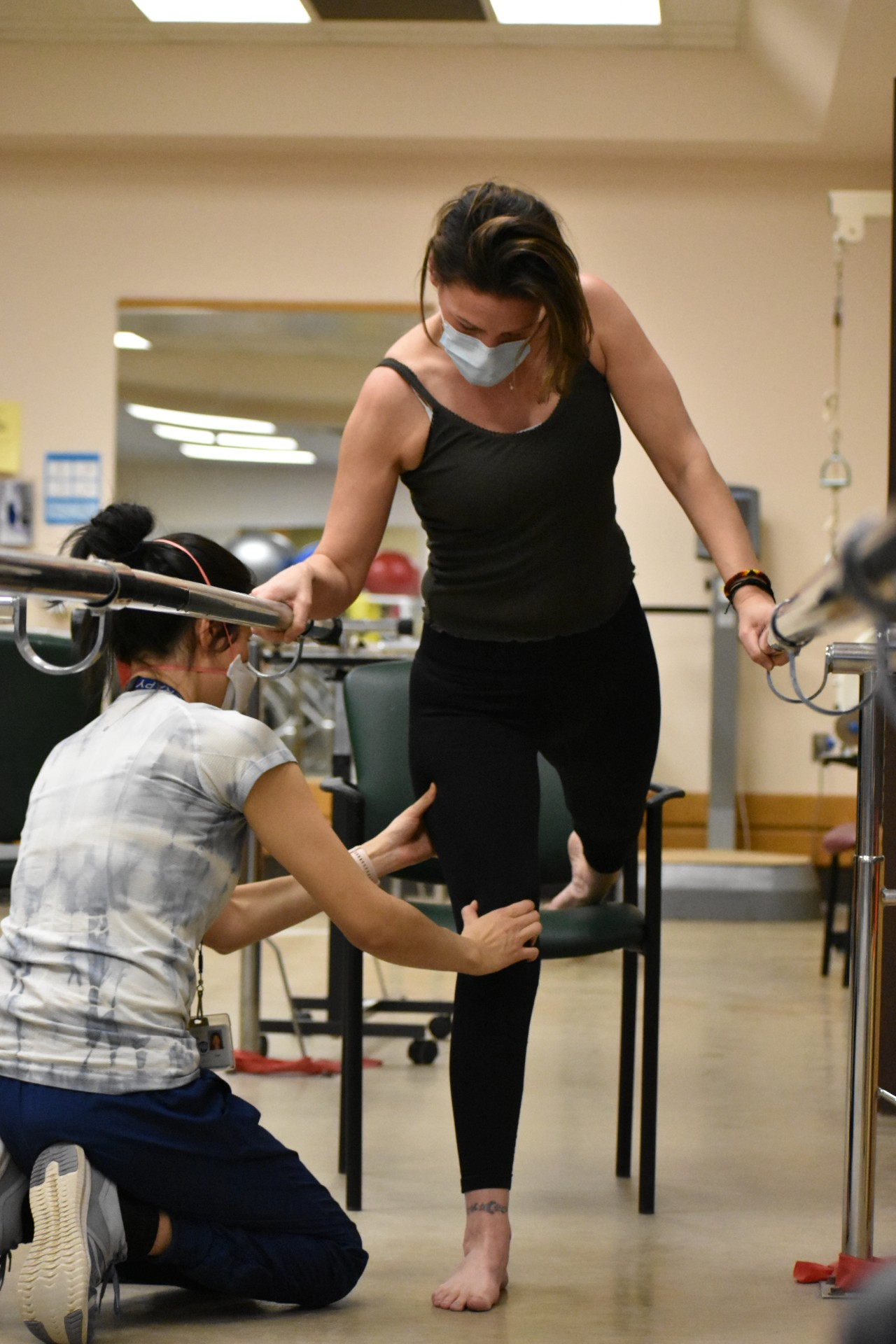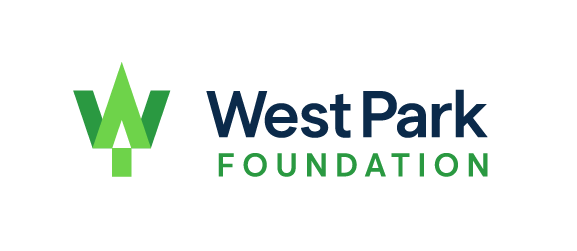
Spotlight: John Butcher
“The Small Wins are the Great Wins.” Patient with Rare Syndrome Achieves Milestones at West Park
John Butcher spent 37 years as a paramedic for the city of Toronto, providing emergency care and transportation to people across the city.
Throughout his years of service, John had completed a few patient transports to West Park. He thought of it as mostly a centre of care for patients with chronic, long-term illnesses.
He never imagined that one day he would become a West Park patient.
Struck with Guillain-Barré Syndrome in the summer of 2022, a rare disorder in which the body’s immune system attacks the nervous system, John found himself a patient of the medical system he had spent years working in.
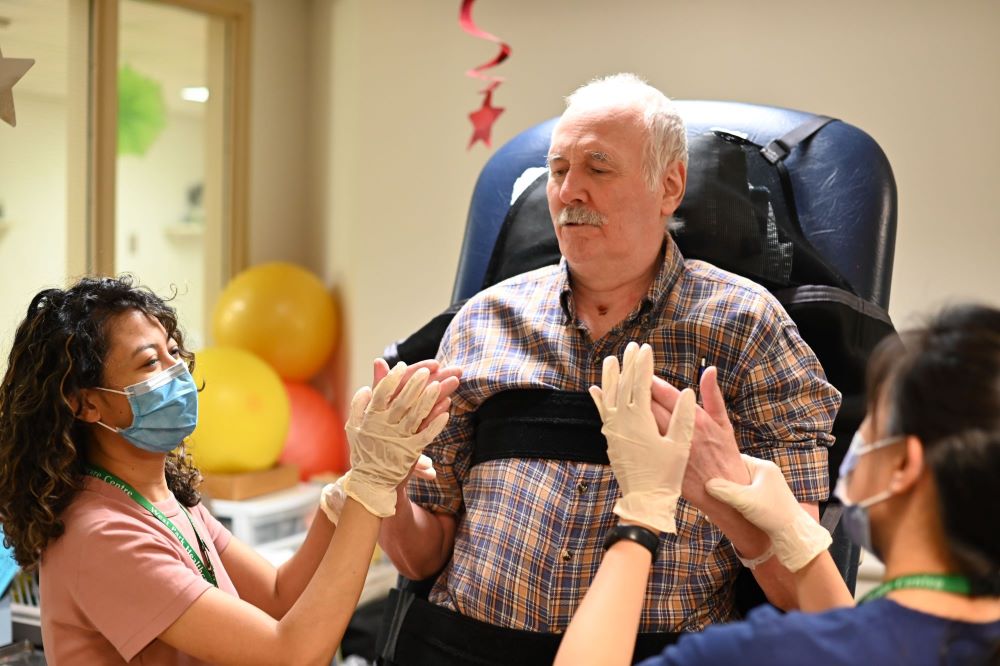
What began as tingling and numbness in his extremities devolved into total paralysis of his entire body below the neck within six weeks. The syndrome also caused immense pain in the paralyzed parts of his body.
While there is no cure for Guillain-Barré Syndrome, treatments can help improve symptoms and shorten the duration of the illness. Most patients notice improvement within days to weeks, but some – like John – take significantly longer.
He arrived at West Park in December 2022, on a ventilator and feeding tube, brought into the CAVC (Chronic Assisted Ventilated Care) unit.
Physical therapists moved and manipulated his joints to prevent them from seizing up and to prepare them to move again while clinicians worked on pain management strategies and treatments.
In January one day, John’s shoulder “felt funny” and he found he was able to move it slightly. The PTs immediately started doing exercises to strengthen those muscles.
From there, functionality came back “like a waterfall”, moving down his body and into his hands, albeit slowly. John says “the doctors said the nerves grow back at a rate of about a millimetre a day, or inch a month” but felt that his grew at a faster rate.
Each month saw an exciting new milestone – drinking from a cup, breathing on his own for 15 minutes, moving off the ventilator entirely, lifting his elbows.
These milestones were celebrated equally by John and staff – all the nurses make sure to wave when they see him – encouraging him to wave back, something that was impossible in the summer.
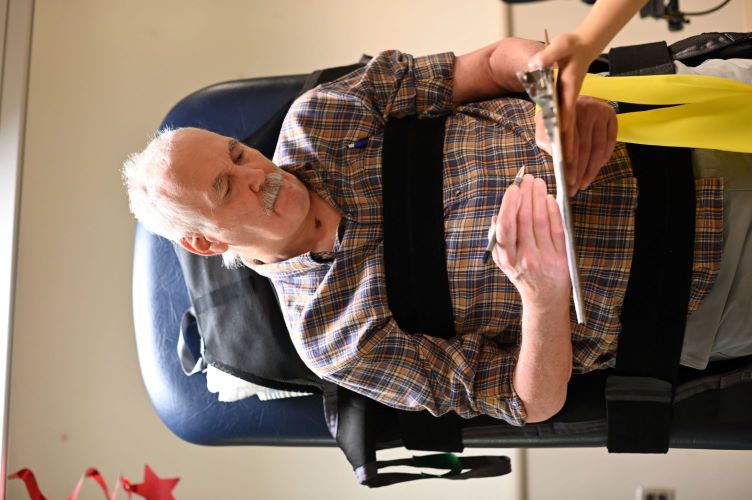
As his Clinical Service Manager Donna Espiritu says, “He’s re-learning skills in a modified way. For us, the small wins, like holding a pen or waving, are the big wins, the great wins.”
John is now able to breathe on his own and feed himself, and he undergoes frequent physiotherapy sessions on the tilt table to facilitate early weight bearing, strengthen his lower limbs and prevent muscle contraction.
John still has months of therapy ahead of him. But when he looks back on his time at West Park, he says he owes the speed of his recovery so far to the staff, “When I started to show signs of improvement they encouraged and assisted me. They had to deal with my severe pain and did so with compassion. My recovery time has been reduced by the excellent treatment in the long term ventilator ward here at West Park.”
